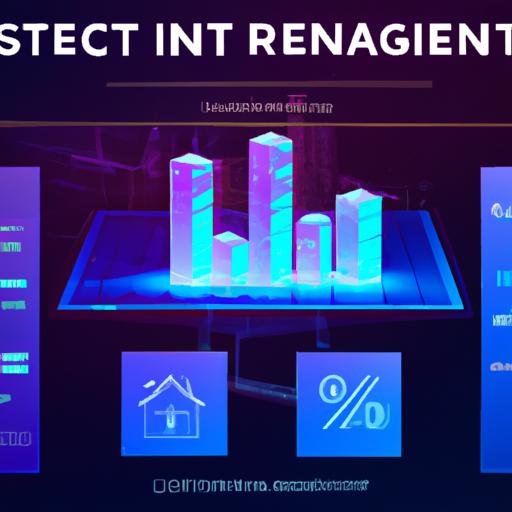The Ultimate Guide to Choosing the Best Website Platform for SEO
Introduction
In the vast digital landscape, where competition is fierce and attention spans are fleeting, the significance of choosing the best website platform for seo cannot be overstated. Picture this: you’ve crafted compelling content, optimized your meta tags, and diligently built backlinks, yet your website fails to rank high on search engine results pages. What could be the missing piece of the puzzle? The answer lies in the foundation of your online presence – the website platform.
When it comes to SEO, the platform you choose serves as the bedrock upon which your digital success is built. A well-suited platform can propel your website to the top of search results, enhancing visibility, driving organic traffic, and ultimately boosting conversions. Conversely, a subpar platform can hinder your SEO efforts, leaving your website languishing in the depths of obscurity. Let’s delve into how the right website platform can be a game-changer in the realm of search engine optimization.
Factors to Consider When Choosing a Website Platform for SEO
Mobile Responsiveness and Site Speed
In an era dominated by mobile devices, a website’s mobile responsiveness is paramount. Search engines prioritize mobile-friendly websites, rewarding them with higher rankings. Additionally, site speed plays a crucial role in user experience and SEO. A slow-loading website can deter visitors and negatively impact search engine rankings.
Customization Options for Meta Tags and URLs
Customization is key when it comes to optimizing your website for search engines. The ability to customize meta tags, including title tags and meta descriptions, allows you to strategically place keywords and attract organic traffic. Similarly, customizable URLs enable you to create SEO-friendly links that are easy for search engines to crawl and inde
Built-in SEO Tools and Plugins
An effective website platform for SEO should offer built-in SEO tools and plugins to streamline optimization efforts. These tools can help you analyze keywords, monitor rankings, and optimize on-page elements. By utilizing these features, you can enhance your website’s visibility and attract more organic traffic.
Schema Markup and Structured Data Support
Implementing schema markup and structured data on your website can boost its visibility in search results. Search engines use this structured data to understand the content of your pages better, leading to rich snippets and enhanced search listings. A website platform that supports schema markup can give you a competitive edge in SEO.
SSL Certificate and Security Features
Security is a crucial ranking factor in SEO. Websites with SSL certificates are deemed more trustworthy by search engines, leading to higher rankings. Additionally, robust security features protect your website from cyber threats and enhance user trust. Prioritize website platforms that offer built-in security measures to safeguard your SEO efforts.
Content Management System Capabilities
A robust content management system (CMS) is essential for effective SEO. The CMS should enable you to create and optimize content seamlessly, including adding alt text to images, formatting headings, and structuring internal links. A user-friendly CMS empowers you to implement SEO best practices and create engaging, search-friendly content.
Comparison of Top Website Platforms for SEO
WordPress
As one of the most popular website platforms globally, WordPress reigns supreme in the realm of SEO. Its user-friendly interface, extensive plugin library, and customizable features make it a powerhouse for optimizing websites for search engines. With robust SEO plugins like Yoast SEO and All in One SEO Pack, WordPress empowers users to effortlessly enhance their website’s visibility and rankings.
Shopify
For e-commerce websites, Shopify stands out as a top choice for SEO optimization. With built-in SEO features, such as customizable meta tags, URL structures, and alt text options, Shopify simplifies the process of fine-tuning your online store for search engines. Its seamless integration with Google Analytics and other SEO tools further bolsters its appeal for businesses looking to drive organic traffic.
Wix
Wix offers a user-friendly website builder that caters to both beginners and experienced users seeking SEO-friendly solutions. While Wix may not have the same level of customization and SEO features as other platforms, its simplicity and drag-and-drop functionality make it a viable option for small businesses and individuals looking to establish an online presence quickly.
Squarespace
Squarespace combines aesthetic appeal with SEO functionality, making it a popular choice for creatives and businesses alike. With built-in SEO features, responsive design templates, and image optimization tools, Squarespace enables users to create visually stunning websites that are also optimized for search engines.
Case Studies: Examples of Successful SEO Strategies on Different Platforms
WordPress: The Power of Plugin Optimization
One shining example of SEO success on WordPress is the case of a small e-commerce business that saw a remarkable surge in organic traffic and conversions. By leveraging SEO plugins such as Yoast SEO and optimizing their meta tags, URLs, and content, this business witnessed a significant boost in search engine rankings. The lesson here? Utilizing WordPress’s customizable plugins can be a game-changer for enhancing SEO performance.
Shopify: Harnessing the Potential of Product Optimization
In another case study, a boutique fashion brand on Shopify saw a substantial increase in online visibility and sales through strategic product optimization. By implementing keyword-rich product descriptions, image alt text, and structured data markup, this brand catapulted its products to the top of search results. This success story underscores the importance of product-focused SEO strategies on e-commerce platforms like Shopify.
Tips for Optimizing Your Website Platform for SEO
Conducting Keyword Research and Implementing Targeted Keywords
In the realm of SEO, keywords reign supreme. Conduct thorough keyword research to identify relevant terms and phrases that resonate with your target audience. Implement these keywords strategically throughout your website content, meta tags, headings, and image alt text to signal to search engines the relevance and importance of your website.
Optimizing Meta Tags, Headings, and Image Alt Text
Meta tags, headings, and image alt text play a crucial role in signaling the content and relevance of your website to search engines. Craft compelling meta titles and descriptions that accurately reflect the content on your pages. Utilize headings to structure your content and incorporate targeted keywords. Additionally, optimize image alt text with descriptive keywords to improve accessibility and SEO.
Creating High-Quality, Relevant Content
Content is king in the digital realm, and high-quality, relevant content can significantly impact your SEO performance. Prioritize creating engaging, informative content that addresses the needs and interests of your target audience. Ensure your content is well-written, optimized for search engines, and provides value to your visitors to enhance user experience and SEO rankings.
Building Backlinks and Improving Site Authority
Backlinks are a powerful signal of credibility and authority in the eyes of search engines. Develop a backlink strategy to secure high-quality, relevant inbound links from reputable websites in your industry. Building a robust backlink profile can improve your site authority and boost your SEO rankings, ultimately driving more organic traffic to your website.
Monitoring and Analyzing SEO Performance Using Tools like Google Analytics
To gauge the effectiveness of your SEO efforts and make informed decisions, it’s essential to monitor and analyze your website’s performance using tools like Google Analytics. Track key metrics such as organic traffic, keyword rankings, and user engagement to identify areas for improvement and optimize your SEO strategy for maximum impact. Regular monitoring and analysis are crucial for staying ahead in the ever-evolving landscape of search engine optimization.


